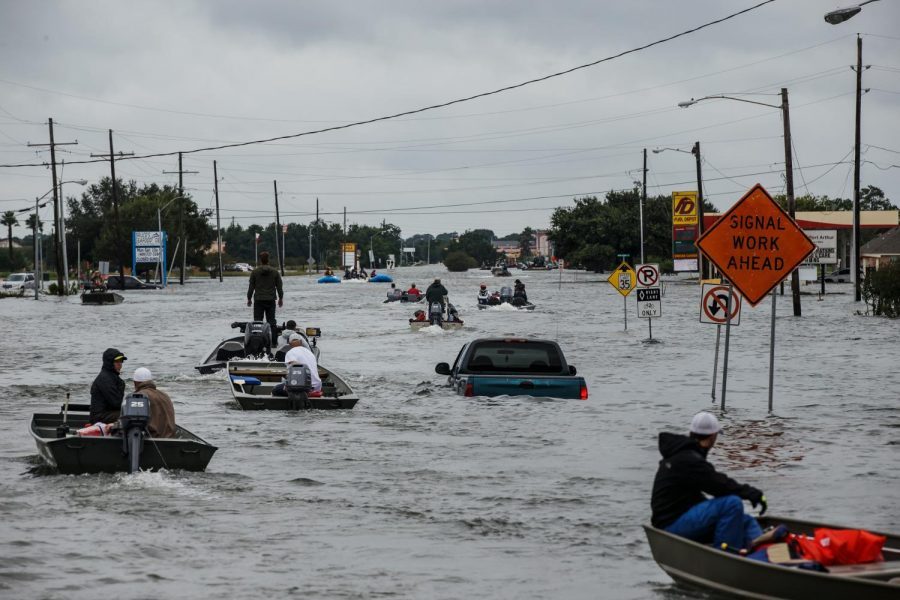The aftermath of Harvey
Flooding in Port Arthur, Texas causes boat traffic.
August 31, 2017
As Hurricane Harvey, now a tropical depression, stormed its path into the east coast cities of Texas, it left in its wake rising waters and devastating displacement. So far, 39 deaths have been reported in Texas, with thousands of refugees searching for a dry spot to rest their heads.
According to CNN, the United States military is deploying more than 6,000 active-duty troops to Texas and Louisiana, in hopes of helping relieve the communities. They will be performing search and rescue missions, while providing medical attention where it’s needed. The US Coast Guard, Customs, police and fire departments, emergency responders and citizens have also pitched in toward the effort.
The US military & Texas National Guard are providing abundant resources to assist the recovery & rescue mission. https://t.co/UsQriKBF3q
— Greg Abbott (@GregAbbott_TX) August 31, 2017
“We are beginning as more resources pour in to do more methodical search and clear operations,” Lt. Col. Travis Walters, public affairs officer for the Texas Military Department said. “Move into a neighborhood, clear the entire neighborhood, make sure it’s clear of people so we save lives, then move on to the next place. That’s what we’re dedicated to doing.”
Harvey broke the US record for most rainfall in a 24 hour period, with parts of Texas receiving 52 inches of water. Houston, the fourth largest city in the country, still remains mostly submerged. The housing industry is also suffering, as families and citizens are experiencing disastrous flooding.
“The state of Texas is about to undergo one of the largest recovery-housing missions that the nation has ever seen,” FEMA Administrator Brock Long said during a news conference Monday. “It’s a long process. Housing is going to be very frustrating in Texas. We have to set the expectations.”
With east coast cities being swamped, at least ten oil refineries have been shut down in the Corpus Christi and Houston regions. Due to the chaos, gas prices are expected to rise, with possibly a 15 or 20 cent per gallon increase.
“This is not going to have an apocalyptic impact on what we pay at the pump,” Tom Kloza, head of global of energy analysis at the Oil Price Information Service said. “[The] slow moving nature of the storm will likely lead to these shutdowns continuing in coming days and may generate persistent damage as well.
President Trump traveled to visit Corpus Christi, Texas on Tuesday and plans to return to Texas and Louisiana this weekend. The president vowed to swiftly pass an appropriation bill in order to alleviate the infrastructure damage on public and private property.
Today he tweeted:
THANK YOU to all of the incredible HEROES in Texas. America is with you! #TexasStronghttps://t.co/8N4ABo9Ihp
— Donald J. Trump (@realDonaldTrump) August 31, 2017
If you would like to donate toward helping the citizens in Texas, you can visit the Red Cross website or text the word HARVEY to 90999 to make a $10 donation.




















